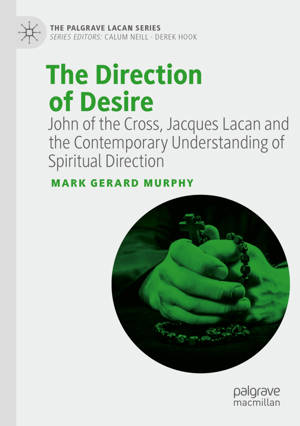
- Afhalen na 1 uur in een winkel met voorraad
- Gratis thuislevering in België vanaf € 30
- Ruim aanbod met 7 miljoen producten
- Afhalen na 1 uur in een winkel met voorraad
- Gratis thuislevering in België vanaf € 30
- Ruim aanbod met 7 miljoen producten
Zoeken
The Direction of Desire
John of the Cross, Jacques Lacan and the Contemporary Understanding of Spiritual Direction
Mark Gerard Murphy
€ 176,45
+ 352 punten
Omschrijving
This book examines Lacanian psychoanalysis and Christian mystical theology demonstrating the former's potential for reinvigorating spiritual direction. The author outlines how current methods of spiritual direction become saturated with self-help psycho-pop methodologies, and that desire has therefore been foreclosed in these practices. He suggests that the root of this is a focus on 'positive affective experientialism', which means spiritual direction must focus on emotional wholeness, healing and positivity. Finally, he argues that a new dialogue between John of the Cross (a mystic whose writings on spiritual direction formulate part of the core of the Catholic spiritual tradition) and Jacques Lacan can open the way for a spiritual direction beyond the confines of experientialism. The book concludes that we can only escape the experiential commodification of spiritual direction by critiquing the drive to experience in and of itself. This novel work will appeal in particular to students and scholars of psychoanalysis, religion, philosophy and critical theory.
Specificaties
Betrokkenen
- Auteur(s):
- Uitgeverij:
Inhoud
- Aantal bladzijden:
- 315
- Taal:
- Engels
- Reeks:
Eigenschappen
- Productcode (EAN):
- 9783031331091
- Verschijningsdatum:
- 27/09/2024
- Uitvoering:
- Paperback
- Afmetingen:
- 148 mm x 18 mm
- Gewicht:
- 436 g

Alleen bij Standaard Boekhandel
+ 352 punten op je klantenkaart van Standaard Boekhandel
Beoordelingen
We publiceren alleen reviews die voldoen aan de voorwaarden voor reviews. Bekijk onze voorwaarden voor reviews.








